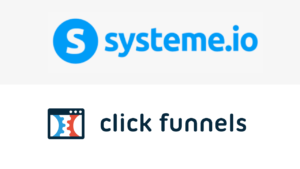When it comes to web hosting, the names SiteGround and Namecheap often stand out. But which one is truly the best for your needs? In this blog post, we’ll dive deep into the pros and cons of SiteGround and Namecheap, unraveling the surprising truths about these popular hosting providers. Whether you’re setting up your first website or looking to switch hosts, this comprehensive comparison will help you make an informed decision. Let’s get started!
Table of Contents
Pricing Plans and Value for Money
When comparing SiteGround vs Namecheap, understanding their pricing plans and the value each provider offers is crucial. Both companies cater to different needs, and their pricing reflects this. Let’s break down what you get for your money with each.
SiteGround Pricing Plans
SiteGround offers three main hosting plans:
- StartUp: Priced at $3.99/month, this plan is perfect for beginners and small websites. It includes hosting for one website, 10 GB of web space, and can handle up to 10,000 visits per month.
- GrowBig: At $6.69/month, this plan is ideal for growing websites. It includes hosting for unlimited websites, 20 GB of web space, and can handle up to 25,000 visits per month. Additionally, it offers enhanced caching and on-demand backups.
- GoGeek: For $10.69/month, this plan is tailored for larger websites and e-commerce. It includes hosting for unlimited websites, 40 GB of web space, and can handle up to 100,000 visits per month. It also offers advanced features like priority support and more server resources.

SiteGround’s plans might seem a bit pricier than some competitors, but they include several premium features such as daily backups, free SSL certificates, and excellent customer support, which can justify the cost.
Namecheap Pricing Plans
Namecheap offers a variety of hosting plans as well:
- Stellar: Priced at $1.98/month, this entry-level plan includes hosting for three websites, 20 GB of SSD storage, and unmetered bandwidth. It’s great for small websites and personal blogs.
- Stellar Plus: For $2.98/month, this plan includes hosting for unlimited websites, unmetered SSD storage, and unmetered bandwidth. It also comes with automatic backups, making it a solid choice for growing sites.
- Stellar Business: At $4.98/month, this plan is designed for businesses. It includes hosting for unlimited websites, 50 GB of SSD storage, and unmetered bandwidth, along with enhanced performance and priority support.
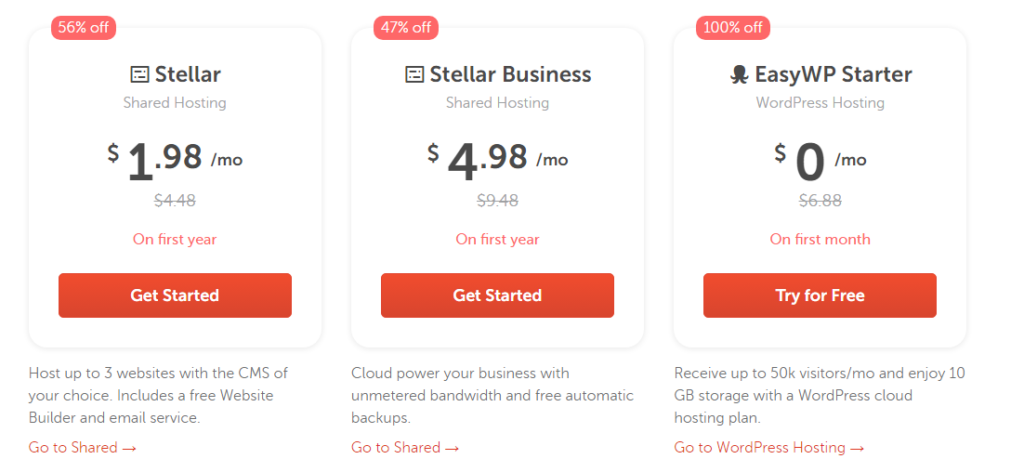
Namecheap’s plans are more budget-friendly, and they offer excellent value, especially for those who are just starting out or running smaller websites. The inclusion of unmetered bandwidth and SSD storage at such a low cost is particularly attractive.
Value for Money
When evaluating the value for money between SiteGround vs Namecheap, it depends on what you need.
- SiteGround offers robust performance, top-tier customer support, and additional features like daily backups and advanced security options, making it a worthwhile investment for those who need reliable and high-performance hosting.
- Namecheap provides cost-effective plans that deliver excellent basic features and flexibility, making it an attractive option for budget-conscious users or those with smaller websites.
By breaking down the pricing and features in a clear, concise manner and using visuals to enhance understanding, you’ll help readers make an informed decision between SiteGround and Namecheap.
Performance and Speed
When evaluating web hosting providers, performance and speed are critical factors. In this comparison of SiteGround vs Namecheap, we’ll examine how each provider stacks up in terms of delivering fast and reliable service.
SiteGround Performance and Speed
SiteGround is renowned for its outstanding performance and speed, thanks to several advanced technologies:
- Google Cloud Infrastructure: SiteGround utilizes Google Cloud servers, which are known for their reliability and speed. This infrastructure ensures that your website benefits from cutting-edge technology and performance.
- SuperCacher: SiteGround offers a proprietary caching tool called SuperCacher, which significantly boosts website loading times. It includes three levels of caching: static, dynamic, and Memcached.
- SSD Storage: All SiteGround plans come with SSD (Solid State Drive) storage, which is much faster than traditional HDD (Hard Disk Drive) storage. This means quicker data retrieval and improved site performance.
- Content Delivery Network (CDN): SiteGround includes a free Cloudflare CDN with its plans. A CDN distributes your website content across multiple servers worldwide, ensuring faster load times for visitors regardless of their geographic location.
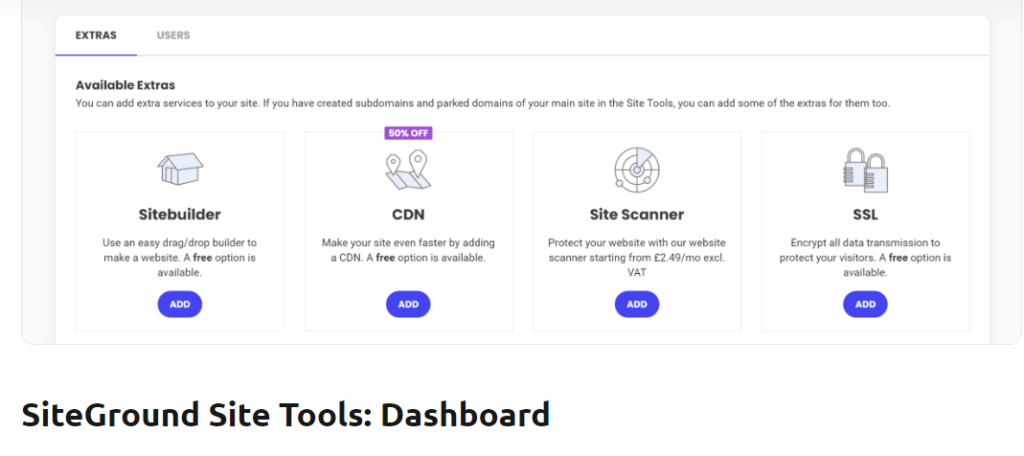
Namecheap Performance and Speed
Namecheap also offers competitive performance and speed, especially given its more budget-friendly pricing:
- SSD Storage: Like SiteGround, Namecheap uses SSD storage across its plans, ensuring faster access to your data and better overall performance.
- Free CDN: Namecheap provides a free CDN with some of its hosting plans. This helps to speed up your website by caching your content on servers around the globe.
- Optimized Software: Namecheap’s servers are optimized with the latest software technologies to enhance speed and performance. They regularly update their software to ensure peak performance.

Comparing SiteGround vs Namecheap Performance and Speed
When comparing SiteGround vs Namecheap in terms of performance and speed, both providers offer solid options, but there are some differences worth noting:
- Advanced Caching with SiteGround: SiteGround’s SuperCacher technology provides an edge in website speed optimization, particularly for dynamic content. This can be especially beneficial for complex websites or e-commerce platforms.
- Infrastructure Advantage: SiteGround’s use of Google Cloud infrastructure generally results in superior performance and reliability. The advanced technology behind Google Cloud offers benefits that are hard to match.
- Value for Money with Namecheap: While Namecheap may not match SiteGround’s performance levels, it still offers impressive speed, especially considering its lower price point. For smaller websites or blogs, Namecheap’s performance is more than adequate.
Uptime and Reliability
When it comes to web hosting, uptime and reliability are crucial factors to consider. After all, you want your website to be accessible to your visitors around the clock. Let’s delve into how SiteGround and Namecheap fare in terms of uptime and reliability.
SiteGround Uptime and Reliability
SiteGround boasts an impressive track record when it comes to uptime and reliability:
- 99.99% Uptime Guarantee: SiteGround stands behind its service with a 99.99% uptime guarantee. This means they strive to keep your website online and accessible to visitors almost all the time.
- Proactive Monitoring: SiteGround’s team proactively monitors servers 24/7 to detect and address any issues before they impact your website’s performance.
- Redundancy Measures: With multiple data centers and redundant hardware setups, SiteGround ensures that your website remains online even in the event of hardware failures or other unforeseen circumstances.
Namecheap Uptime and Reliability
Namecheap also takes uptime and reliability seriously, albeit with a slightly lower uptime guarantee:
- 99.9% Uptime Guarantee: Namecheap guarantees 99.9% uptime for your website, which is still considered excellent in the industry.
- 24/7 Monitoring: Like SiteGround, Namecheap monitors its servers around the clock to ensure optimal performance and address any issues promptly.
- Reliable Data Centers: Namecheap operates data centers equipped with state-of-the-art technology and redundant systems to minimize downtime and ensure reliability.
Comparing SiteGround vs Namecheap Uptime and Reliability
When comparing SiteGround vs Namecheap in terms of uptime and reliability, both providers offer solid performance:
- SiteGround’s Higher Uptime Guarantee: SiteGround’s 99.99% uptime guarantee edges out Namecheap’s 99.9% guarantee, providing a slightly higher level of assurance for website owners.
- Proactive Monitoring vs Standard Monitoring: SiteGround’s proactive monitoring approach ensures issues are identified and addressed swiftly, potentially minimizing downtime. While Namecheap also monitors its servers around the clock, the proactive aspect of SiteGround’s monitoring may offer added peace of mind for some users.
Customer Support
When it comes to web hosting, reliable customer support can make all the difference, especially when you encounter technical issues or need assistance with your website. Let’s explore how SiteGround and Namecheap stack up in terms of customer support.
SiteGround Customer Support
SiteGround is renowned for its exceptional customer support, and for good reason:
- 24/7 Support: SiteGround offers round-the-clock support via live chat, phone, and ticketing system. This means you can reach out for assistance anytime, day or night.
- Highly Rated: SiteGround consistently receives high ratings for its customer support. Users often praise the knowledgeable and responsive support agents who go above and beyond to help resolve issues.
- Extensive Knowledge Base: In addition to direct support, SiteGround provides a comprehensive knowledge base filled with articles, tutorials, and guides to help users troubleshoot common issues on their own.
Namecheap Customer Support
Namecheap also offers customer support around the clock, though opinions on its quality may vary:
- 24/7 Support: Like SiteGround, Namecheap provides 24/7 support through live chat and ticketing system. However, some users report longer response times during peak hours.
- Good Reviews: While Namecheap generally receives positive feedback for its customer support, there are occasional complaints about slower response times or less knowledgeable agents.
- Knowledge Base: Namecheap provides a knowledge base with resources and guides to assist users with common questions and issues.
Comparing SiteGround vs Namecheap Customer Support
When comparing SiteGround vs Namecheap in terms of customer support, both providers offer accessible support channels and resources:
- SiteGround’s Responsive Support: SiteGround’s highly rated support team and prompt response times give it an edge in terms of customer satisfaction and problem resolution.
- Namecheap’s Adequate Support: While Namecheap also provides 24/7 support and helpful resources, some users may find the response times slightly slower or the level of expertise not as consistent as SiteGround.
Ease of Use and User Interface
When choosing a web hosting provider, ease of use and a user-friendly interface can significantly impact your experience. Let’s explore how SiteGround and Namecheap compare in terms of ease of use and user interface.
SiteGround Ease of Use
SiteGround is known for its intuitive and user-friendly interface, designed to simplify website management:
- Custom Dashboard: SiteGround provides a custom dashboard that is clean, organized, and easy to navigate. Whether you’re managing your hosting account, setting up email accounts, or installing applications, SiteGround’s dashboard makes it straightforward.
- cPanel Integration: For users familiar with cPanel, SiteGround offers seamless integration, allowing you to access all your hosting features and settings in one place.
- Guided Setup: SiteGround offers step-by-step wizards and tutorials to guide you through the process of setting up your website, making it ideal for beginners.
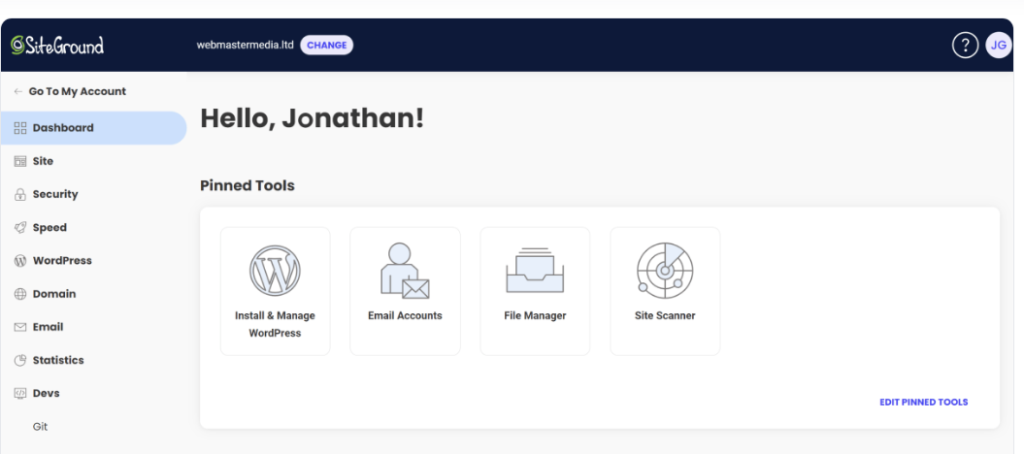
Namecheap Ease of Use
Namecheap also prioritizes simplicity and ease of use in its hosting interface:
- cPanel Interface: Like SiteGround, Namecheap utilizes cPanel as its control panel, providing users with a familiar interface for managing their hosting account.
- Namecheap Dashboard: Namecheap’s dashboard is clean and straightforward, offering easy access to essential features such as domain management, website builders, and account settings.
- Guided Setup: Namecheap provides basic setup wizards to help users get started with tasks like installing applications or setting up email accounts.

Comparing SiteGround vs Namecheap Ease of Use and User Interface
Both SiteGround and Namecheap offer user-friendly interfaces, but there are some differences:
- SiteGround’s Custom Dashboard: SiteGround’s custom dashboard provides a more polished and intuitive user experience compared to Namecheap’s interface. It’s designed with user convenience in mind, offering easy access to all hosting features.
- Namecheap’s Simplicity: While Namecheap’s interface may not be as visually polished as SiteGround’s, it still offers a straightforward user experience that is easy to navigate, especially for users familiar with cPanel.
Security Features
When it comes to web hosting, security is paramount. You want to ensure that your website and data are protected from potential threats and vulnerabilities. Let’s explore the security features offered by SiteGround and Namecheap to help you make an informed decision.
SiteGround Security Features
SiteGround prioritizes the security of its users’ websites with a range of robust features:
- Free SSL Certificates: SiteGround provides free Let’s Encrypt SSL certificates with all hosting plans. SSL encryption ensures that data transmitted between your website and visitors’ browsers is encrypted and secure.
- Daily Backups: SiteGround automatically backs up your website data every day, allowing you to restore your site to a previous version in case of emergencies or data loss.
- AI Anti-Bot System: SiteGround employs an artificial intelligence-powered anti-bot system that protects your website from malicious bots and automated attacks.
- Security Patches: SiteGround regularly updates its servers with the latest security patches and measures to address emerging threats and vulnerabilities.
Namecheap Security Features
Namecheap also offers a range of security features to safeguard your website and data:
- Free SSL Certificates: Like SiteGround, Namecheap provides free SSL certificates with its hosting plans, ensuring secure data transmission.
- Backup Options: Namecheap offers regular backups of your website data, though the frequency may vary depending on your plan. This feature allows you to restore your site in case of data loss or corruption.
- Two-Factor Authentication (2FA): Namecheap supports two-factor authentication, adding an extra layer of security to your account login process.
- DDoS Protection: Namecheap provides basic protection against Distributed Denial of Service (DDoS) attacks, which can help mitigate the impact of such attacks on your website’s availability.
Comparing SiteGround vs Namecheap Security Features
Both SiteGround and Namecheap offer essential security features to protect your website, but there are some differences:
- SiteGround’s Comprehensive Approach: SiteGround’s security features, such as daily backups and AI anti-bot system, provide a comprehensive defense against various threats, making it a preferred choice for users who prioritize robust security measures.
- Namecheap’s Solid Offerings: While Namecheap may not offer as many advanced security features as SiteGround, its provision of free SSL certificates and backup options still provides a solid foundation for website security, especially for users on a budget.
Backup and Restore Options
Having reliable backup and restore options is crucial for safeguarding your website data and ensuring business continuity in the event of data loss or corruption. Let’s explore the backup and restore options provided by SiteGround and Namecheap to help you make an informed decision.
SiteGround Backup and Restore Options
SiteGround offers comprehensive backup and restore options to protect your website data:
- Daily Backups: SiteGround automatically creates backups of your website data every day. These backups include files, databases, and emails, allowing you to restore your site to a previous state with ease.
- On-Demand Backups: In addition to daily backups, SiteGround allows users to create on-demand backups of their website at any time. This feature is especially useful before making significant changes to your site or installing new plugins or updates.
- Easy Restore Process: SiteGround provides a user-friendly interface for restoring your website from backups. With just a few clicks, you can revert your site to a previous version and minimize downtime.
Namecheap Backup and Restore Options
Namecheap also offers backup and restore options to protect your website data:
- Regular Backups: Namecheap automatically backs up your website data on a regular basis, though the frequency may vary depending on your hosting plan. These backups can be crucial for recovering lost or corrupted data.
- Manual Backup Options: In addition to automated backups, Namecheap allows users to create manual backups of their website data. This gives you more control over when and how often backups are performed.
- Restore Assistance: If you need help restoring your website from a backup, Namecheap’s support team is available to assist you. They can guide you through the process and ensure that your site is restored properly.

Comparing SiteGround vs Namecheap Backup and Restore Options
Both SiteGround and Namecheap offer reliable backup and restore options, but there are some differences:
- SiteGround’s Daily Backups: SiteGround’s daily backups provide more frequent data protection, ensuring that your website data is backed up regularly and minimizing the risk of data loss.
- Namecheap’s Manual Backup Control: Namecheap’s manual backup options give users more control over their backup schedule, allowing them to create backups as needed and customize their backup strategy.
Domain Registration Services
Choosing the right domain name is crucial for establishing your online presence, and having a reliable domain registration service is essential for managing your domains effectively. Let’s explore the domain registration services offered by SiteGround and Namecheap to help you make an informed decision.
SiteGround Domain Registration Services
SiteGround provides domain registration services, although it’s not their primary focus:
- Domain Registration: SiteGround allows you to register new domain names directly through their platform. They offer a variety of domain extensions (TLDs) to choose from, allowing you to find the perfect domain for your website.
- Free Domain: Unlike some hosting providers, SiteGround typically does not include a free domain with their hosting plans. However, they do offer competitive pricing for domain registration.
- Domain Management: SiteGround provides basic domain management tools, allowing you to easily manage your domain settings, DNS records, and WHOIS information.
Namecheap Domain Registration Services
Namecheap is known for its domain registration services and offers a wide range of domain-related features:
- Domain Registration: Domain registration is Namecheap’s primary service, and they offer an extensive selection of domain extensions at competitive prices. Whether you’re looking for a .com, .net, or a unique TLD, Namecheap has you covered.
- Free Domain: Many of Namecheap’s hosting plans include a free domain registration for the first year, making it a cost-effective option for getting started with your online presence.
- Domain Management: Namecheap provides robust domain management tools, allowing you to easily manage your domains, update DNS settings, and configure domain forwarding.
Comparing SiteGround vs Namecheap Domain Registration Services
When comparing SiteGround vs Namecheap in terms of domain registration services, there are some differences to consider:
- SiteGround’s Secondary Focus: While SiteGround offers domain registration services, it’s not their primary focus. As a result, their domain offerings may not be as extensive or feature-rich as Namecheap’s.
- Namecheap’s Domain Expertise: Namecheap is renowned for its domain registration services and offers a wide range of domain-related features, including free domain registration with hosting plans and robust domain management tools.
Where to Add Images
- Domain Registration Interface: Include screenshots of the domain registration interfaces provided by SiteGround and Namecheap to demonstrate how users can search for and register domain names.
- Domain Extension Variety: Use images or icons to showcase the variety of domain extensions (TLDs) available through both SiteGround and Namecheap, highlighting the options available for choosing the perfect domain name.
- Domain Management Tools: Add screenshots of the domain management interfaces provided by SiteGround and Namecheap to illustrate how users can manage their domains, update settings, and configure DNS records.
By providing clear insights into the domain registration services offered by SiteGround and Namecheap, along with relevant images, readers can better understand the domain options available and choose the provider that best suits their domain registration and management needs.
Website Migration Services
If you’re considering switching web hosting providers, website migration services can make the transition seamless and hassle-free. Let’s explore the website migration services offered by SiteGround and Namecheap to help you decide which provider is right for you.
SiteGround Website Migration Services
SiteGround offers comprehensive website migration services to help you move your website from your current host to their platform:
- Free Migration: SiteGround provides free website migration for one website with all of their hosting plans. Their team of experts handles the migration process for you, ensuring a smooth transition with minimal downtime.
- Multiple Platforms Supported: Whether your website is built on WordPress, Joomla, Drupal, or another platform, SiteGround’s migration team can handle the transfer with ease.
- Priority Support: SiteGround’s migration team prioritizes website migrations, ensuring that your website is moved quickly and efficiently.
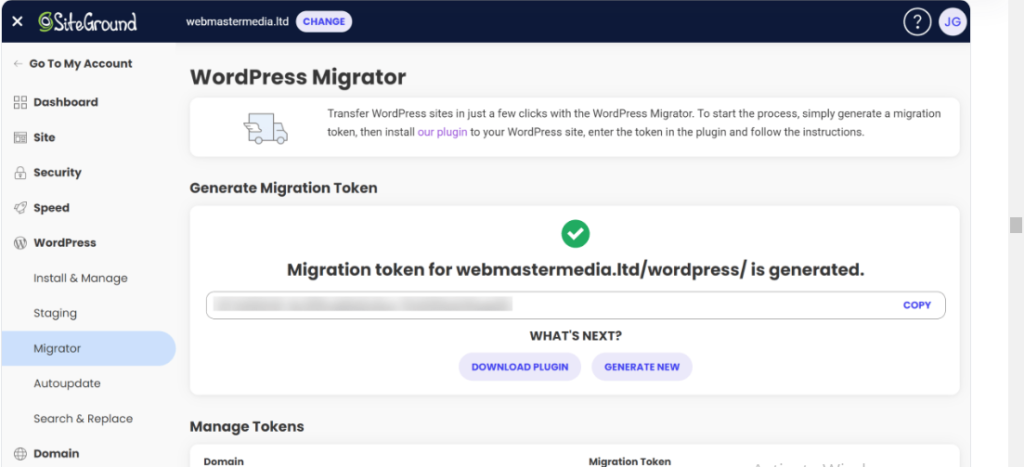
Namecheap Website Migration Services
Namecheap also offers website migration services to simplify the process of moving your website to their platform:
- Free Self-Service Migration: Namecheap provides tools and resources to help you migrate your website yourself. While this option requires more technical know-how, it gives you greater control over the migration process.
- Guided Migration Assistance: If you prefer assistance with your website migration, Namecheap offers guided migration assistance from their support team. They can walk you through the process and provide guidance as needed.
- Compatibility Checks: Namecheap performs compatibility checks to ensure that your website functions correctly after migration, minimizing the risk of issues or downtime.

Comparing SiteGround vs Namecheap Website Migration Services
Both SiteGround and Namecheap offer website migration services, but there are differences in their approach:
- SiteGround’s Hands-Off Approach: SiteGround’s free website migration service takes the hassle out of migrating your website by handling the entire process for you. This option is ideal for users who want a hands-off migration experience.
- Namecheap’s Self-Service and Guided Options: Namecheap provides flexibility with self-service migration tools for users comfortable with DIY migrations and guided migration assistance for those who prefer expert guidance.
Scalability and Resources
Scalability and resources are key considerations when choosing a web hosting provider, especially if you anticipate growth or have fluctuating traffic levels. Let’s explore how SiteGround and Namecheap address scalability and provide resources to support your website’s needs.
SiteGround Scalability and Resources
SiteGround offers scalable hosting solutions with ample resources to accommodate your website’s growth:
- Scalable Plans: SiteGround’s hosting plans are designed to scale with your website’s needs. Whether you’re starting small or managing a high-traffic website, SiteGround offers plans that can accommodate your requirements.
- Resource Allocation: SiteGround allocates resources such as CPU, RAM, and storage based on the specific plan you choose. This ensures that your website has the necessary resources to perform optimally at all times.
- Cloud Hosting Options: SiteGround’s cloud hosting solutions provide even greater scalability and flexibility, allowing you to easily upgrade resources as your website grows.
Namecheap Scalability and Resources
Namecheap also provides scalable hosting solutions with ample resources to support your website:
- Flexible Plans: Namecheap offers a range of hosting plans to suit different website needs and budgets. Whether you’re running a personal blog or an e-commerce store, Namecheap has a plan that can scale with your requirements.
- Resource Allocation: Like SiteGround, Namecheap allocates resources such as CPU, RAM, and storage based on the plan you choose. This ensures that your website has the necessary resources to perform optimally.
- VPS and Dedicated Server Options: For websites with higher resource demands, Namecheap offers VPS (Virtual Private Server) and dedicated server options, providing increased scalability and control over resources.
Comparing SiteGround vs Namecheap Scalability and Resources
Both SiteGround and Namecheap offer scalable hosting solutions with ample resources, but there are differences in their offerings:
- SiteGround’s Cloud Hosting: SiteGround’s cloud hosting options provide additional scalability and flexibility, making it a preferred choice for websites with fluctuating traffic levels or resource-intensive applications.
- Namecheap’s VPS and Dedicated Servers: Namecheap’s VPS and dedicated server options offer increased scalability and control over resources, making them suitable for websites with high resource demands or specific customization requirements.
Additional Features and Tools
When choosing a web hosting provider, it’s essential to consider the additional features and tools they offer beyond basic hosting services. Let’s explore the additional features and tools provided by SiteGround and Namecheap to help you make an informed decision.
SiteGround Additional Features and Tools
SiteGround provides a variety of additional features and tools to enhance your hosting experience:
- Website Builder: SiteGround offers a user-friendly website builder that allows you to create professional-looking websites without any coding knowledge. With drag-and-drop functionality and customizable templates, building your website is a breeze.
- Email Hosting: SiteGround includes email hosting with all of its plans, allowing you to create custom email addresses associated with your domain name. This professional touch can help you establish credibility and brand identity.
- WordPress and Joomla Tools: SiteGround offers specialized tools and optimizations for WordPress and Joomla users, making it easier to manage and optimize your website on these popular platforms.

Namecheap Additional Features and Tools
Namecheap also provides a range of additional features and tools to enhance your hosting experience:
- Free Website Builder: Namecheap offers a free website builder with its hosting plans, allowing you to create beautiful websites with ease. The drag-and-drop interface and customizable templates make it easy to design your site to your liking.
- Email Hosting: Like SiteGround, Namecheap includes email hosting with its plans, allowing you to create custom email addresses for your domain. You can access your email accounts through a user-friendly web interface or use third-party email clients.
- App Installer: Namecheap offers an app installer tool that allows you to easily install popular web applications such as WordPress, Joomla, and Drupal with just a few clicks. This simplifies the process of setting up your website and getting started quickly.
Comparing SiteGround vs Namecheap Additional Features and Tools
Both SiteGround and Namecheap offer a range of additional features and tools to enhance your hosting experience:
- Website Builders: Both providers offer website builders with drag-and-drop functionality, making it easy to create professional-looking websites without any coding knowledge.
- Email Hosting: SiteGround and Namecheap include email hosting with their plans, allowing you to create custom email addresses for your domain and manage your email accounts.

User Reviews and Feedback
Understanding user reviews and feedback is crucial when choosing a web hosting provider. It provides real-world insights into the performance, reliability, and customer service of the hosting companies. Let’s explore what users are saying about SiteGround and Namecheap.
SiteGround User Reviews and Feedback
SiteGround consistently receives high marks from users for its performance, support, and reliability:
- Performance and Speed: Many users praise SiteGround for its excellent performance and speed. Users report fast loading times and reliable uptime, making it a top choice for those who prioritize website performance.
- Customer Support: SiteGround’s customer support is frequently highlighted in reviews. Users appreciate the knowledgeable and responsive support team, available 24/7 through live chat, phone, and tickets.
- Ease of Use: Users often mention SiteGround’s intuitive interface and user-friendly features. The custom dashboard and cPanel integration make it easy for both beginners and experienced users to manage their websites.
- Security: Reviews often highlight SiteGround’s robust security features, including daily backups, free SSL certificates, and an AI anti-bot system, providing peace of mind for website owners.
Namecheap User Reviews and Feedback
Namecheap also receives positive feedback from users, particularly for its value and customer service:
- Affordability: Users frequently mention Namecheap’s competitive pricing and excellent value for money. The hosting plans are affordable, making them an attractive option for budget-conscious users.
- Customer Support: Namecheap’s customer support is generally well-regarded. Users appreciate the availability of support through live chat and tickets, although some reviews suggest that response times can vary.
- Domain Services: Many users praise Namecheap for its domain registration services. The wide variety of domain extensions and user-friendly domain management tools are frequently mentioned in reviews.
- Flexibility: Users also appreciate the flexibility Namecheap offers, with a range of hosting plans and the ability to easily upgrade as their website grows.
Comparing SiteGround vs Namecheap User Reviews and Feedback
When comparing SiteGround vs Namecheap based on user reviews and feedback, several key points emerge:
- Performance and Reliability: SiteGround tends to receive higher marks for performance and reliability, with users frequently praising its fast loading times and dependable uptime.
- Affordability and Value: Namecheap is often highlighted for its affordability and value, making it a popular choice for users seeking cost-effective hosting solutions.
- Customer Support: Both providers receive positive feedback for customer support, but SiteGround’s support team is often noted for its exceptional responsiveness and expertise.
Pros and Cons of SiteGround
Pros and Cons of SiteGround
When it comes to web hosting, SiteGround is a name that often pops up in discussions. But is it the right choice for you? Let’s uncover the pros and cons of SiteGround to help you make an informed decision.
Pros:
- Reliable Uptime: SiteGround boasts an impressive uptime record, ensuring that your website stays online and accessible to your visitors.
- Top-Notch Performance: With cutting-edge technology and server optimization, SiteGround delivers fast loading speeds, which is crucial for user experience and SEO.
- Excellent Customer Support: SiteGround is renowned for its exceptional customer support. Their team is available 24/7 via live chat, phone, and ticketing system to assist you with any issues or queries promptly.
- Advanced Security Features: SiteGround takes security seriously, offering a range of security features such as daily backups, free SSL certificates, and proactive server monitoring to keep your website safe from threats.
- User-Friendly Interface: Whether you’re a beginner or an experienced user, SiteGround’s intuitive control panel makes managing your hosting account and website hassle-free.
Cons:
- Limited Storage: SiteGround’s entry-level plans come with limited storage space, which might not be sufficient for larger websites or businesses with extensive media files.
- Renewal Price Increase: While SiteGround offers competitive introductory prices, the renewal rates can be higher, which might catch some users off guard.
- Strict Resource Usage Policy: SiteGround enforces strict resource usage limits, which could lead to temporary restrictions or additional charges if your website experiences sudden traffic spikes or resource-intensive tasks.
- Geographical Limitations: SiteGround’s data centers are primarily located in the US, Europe, and Asia-Pacific regions, which might not be ideal for websites targeting audiences in other parts of the world.
Pros and Cons of Namecheap
When considering web hosting options, Namecheap often comes up as a popular choice, especially among those looking for affordable services. But does it live up to the hype? Let’s delve into the pros and cons of Namecheap to help you decide if it’s the right fit for your needs.
Pros:
- Affordable Pricing: Namecheap is known for its budget-friendly pricing, making it an attractive option for startups, small businesses, and personal websites. Their competitive rates are hard to beat.
- Free Domain with Hosting: Namecheap often includes a free domain name for the first year with many of their hosting plans, which can be a great cost-saving benefit for new website owners.
- User-Friendly Interface: The Namecheap dashboard is intuitive and easy to navigate, even for beginners. Managing your domains, hosting, and email accounts is straightforward.
- Privacy and Security: Namecheap offers free domain privacy protection, ensuring your personal information remains private. Additionally, they provide free SSL certificates with their hosting plans, adding an extra layer of security to your website.
- Reliable Customer Support: Namecheap provides 24/7 customer support via live chat and ticketing system, ensuring you have assistance whenever you need it.
Cons:
- Performance Limitations: While Namecheap offers reliable uptime, their performance in terms of loading speeds might not match up to some of the more premium hosting providers. This can impact user experience and SEO.
- Limited Data Centers: Namecheap’s data centers are predominantly based in the US and the UK, which might not be ideal for websites targeting audiences in other regions.
- Resource Restrictions: Similar to other budget hosting providers, Namecheap’s entry-level plans come with resource limitations. Websites with high traffic or resource-intensive applications may need to upgrade to higher-tier plans.
- Upsells and Add-ons: Namecheap often presents upsells and add-ons during the checkout process, which can be overwhelming for new users. While some of these add-ons are useful, they can also increase your overall cost.
Conclusion: Which Hosting Provider is Right for You?
Choosing between SiteGround and Namecheap ultimately comes down to your specific needs and priorities. Both hosting providers have their strengths and weaknesses, and the right choice for you depends on what you value most in a hosting service.
When to Choose SiteGround:
- Performance and Reliability: If uptime and fast loading speeds are your top priorities, SiteGround’s robust infrastructure and performance-focused features make it an excellent choice.
- Advanced Security: For those who need strong security measures and frequent backups, SiteGround’s comprehensive security suite offers peace of mind.
- Superior Customer Support: If you anticipate needing frequent, high-quality support, SiteGround’s highly rated customer service team is a significant advantage.
- User-Friendly Experience: Whether you’re a beginner or experienced user, SiteGround’s intuitive interface makes managing your website a breeze.
When to Choose Namecheap:
- Budget-Friendly Options: If affordability is your main concern, Namecheap’s competitive pricing and cost-saving features like free domain registration make it a budget-friendly option.
- Simplicity and Ease of Use: Namecheap’s straightforward dashboard and user-friendly setup process are ideal for those new to web hosting.
- Privacy and Security on a Budget: If you’re looking for privacy protection and free SSL certificates without breaking the bank, Namecheap delivers good value.
- Reliable Support: While not as renowned as SiteGround’s, Namecheap’s 24/7 support is reliable and accessible, ensuring you get help when you need it.
My final Thoughts:
- SiteGround is best for those who prioritize performance, security, and customer support, and are willing to invest a bit more for these premium features.
- Namecheap is ideal for individuals or small businesses on a tight budget who need reliable hosting with essential features and good customer support.
Evaluate your website’s needs, budget constraints, and growth plans before making a decision. Both SiteGround and Namecheap offer quality hosting services, but the best choice depends on aligning their offerings with your specific requirements. By considering the pros and cons of each provider, you can confidently choose the hosting provider that will best support your website’s success.



